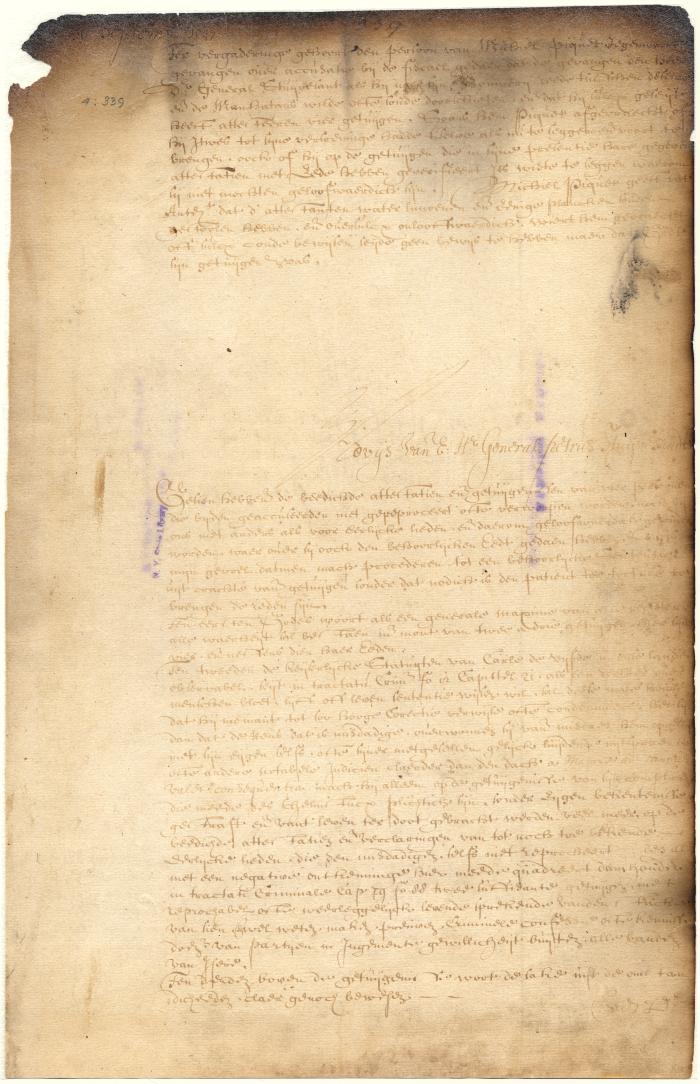Examination. Of Michel Picquet, on a charge of threatening to shoot director Stuyvesant. [1647] (page 339);Opinion of director Stuyvesant, that there being four witnesses in support of the above charge against Picquet, it is unnecessary to subject him to torture. [1647] (page 339);Opinion of vice-director Dincklage, that the prisoner must be convicted on his own confession, whether voluntary or by torture, on the principle, nemo inauditus et sine propria confessione facile condemnatur. Opinion of Brian Nuton : he may be condemned on the above evidence. Of Paulus Leendertsen (van der Grist): that the prisoner must first be brought to the rack (tortured) and confess, otherwise he cannot be condemned to death; he can only be banished on the evidence of others. Of Adriaen Keyser: that the prisoner be tortured, and, when he confesses, condemned; in case he do not confess, he may then be banished. [1647] (page 339-340);Resolution. That each of the members of the council shall conscientiously declare what punishment the prisoner deserves, and votes of the several members of the council accordingly. [1647] (page 341);Sentence of Michael Picquet: perpetual banishment, and eighteen years' imprisonment at hard labor in the workhouse at Amsterdam. [1647] (page 342);Resolution. To seize the ship St. Beningo, at New Haven, and bring her to New Amsterdam. [1647] (page 343)





